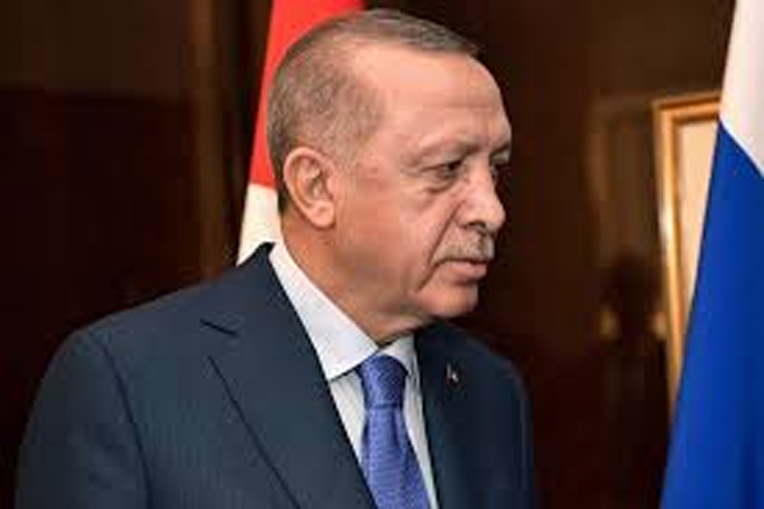By Manish Rai
Since the fall of Assad’s regime in early December, violent confrontations have surged in northern Syria between US-backed Kurdish forces and the Turkish-backed Syrian National Army (SNA). In the wake of this regime change, Turkey has emerged as a crucial regional player, bolstering the Syrian National Army and Hayat Tahrir al-Sham (HTS) to strengthen its influence in Syria. With the changing geopolitical landscape, Turkish officials are exploiting the moment to challenge the small Kurdish enclave known as Rojava that borders Turkey.
The Kurdish people, often cited as the world’s largest stateless ethnic group, have endured centuries of oppression and marginalization. Within the borders of Turkey, Syria, Iraq, and Iran, they share a rich cultural and linguistic heritage but remain politically fragmented due to borders established post-World War I. The situation for Kurds in Syria has been particularly dire, facing decades of repression under the Baath regime’s Arab nationalist policies. Long treated as second-class citizens, many Syrian Kurds lost their citizenship rights in the 1960s, rendering them stateless and deprived of basic rights like education and property ownership. Today, Syrian Kurds, who constitute roughly 10-15% of the population, find themselves marginalized compared to their counterparts in Turkey, Iraq, and Iran.
At the onset of the Syrian war, the Kurdish Democratic Union Party (PYD) opted not to align with either the Assad regime or anti-regime factions, instead focusing on establishing control in the north. In 2012, it declared the formation of an autonomous region known as Rojava, made up of three distinct cantons: Afrin, Kobane, and Manbij. Despite Turkish military interventions threatening the PYD’s hold in northern Syria, the group has managed to maintain a well-organized government and a commitment to grassroots democracy, gender equality, and minority rights even in challenging circumstances.
This situation is notable in the Middle East, where aspirations for democracy have often been stifled since the Arab Spring. As they confront Turkish-backed forces and direct assault through artillery strikes and air raids, the Kurdish governance in Syria is now fighting for its survival. Turkey’s primary aim in Syria is clear: to dismantle the Kurdish-led, multi-ethnic administration along its southern border and to push Kurdish refugees into the Syrian desert, creating a 20-mile deep “safe zone” where Turkish-backed refugees would be resettled in areas previously inhabited by Kurds, thereby reshaping the demographic landscape in accordance with domestic anti-refugee sentiments.
Turkey has consistently targeted not just bases of the Kurdistan Workers’ Party (PKK) but all Kurdish entities in the region. Kurdish forces in Syria have been subjected to regular attacks by Turkish military operations and allied militias, including the Euphrates Shield and Olive Branch campaigns. Syrian Kurds are at the top of Turkey’s target list as they stand as a significant obstacle to Ankara’s territorial ambitions in Syria. The Turkish government justifies its aggressive stance towards Kurdish forces by labeling Kurdish-held areas in northern Syria as havens for terrorism, alleging connections to the outlawed PKK, which has waged a guerrilla war against Turkey since 1984.
However, Turkey has failed to provide evidence of any attacks launched by Kurds against Turkey from Syrian territory. The underlying objective of Turkey’s aggression appears to be to displace Kurds from these regions and replace them with pro-Turkish populations. This has been evident in Turkey’s past operations, including Afrin, which have been described by many as acts of ethnic cleansing rather than genuine anti-terror efforts. Amnesty International has documented serious violations of human rights by Turkish forces and their allies, including war crimes, unlawful attacks, and atrocious treatment of civilians during military operations in northeast Syria.
The Syrian Democratic Forces (SDF), the military arm of the Autonomous Administration of North and East Syria (Rojava), has served as a vital ally to the West against ISIS, executing significant ground operations against the group. It is crucial to note that Syrian Kurds currently hold thousands of ISIS militants in prisons under their control and surveillance.
The suggestion from the new regime in Damascus, led by Hayat Tahrir al-Sham, to assume custody of the Al-Hol camp, which shelters numerous Islamic State fighters and their families, is ludicrous—it’s like a predator volunteering to guard its prey. The repercussions could be severe; thousands of ISIS fighters could disperse throughout Syria, the Middle East, and beyond, into Europe, with Turkish President Recep Tayyip Erdoğan leveraging this situation to extort concessions from weakened European and NATO leaders in exchange for his “promise” not to unleash a new wave of illegal immigration.
Turkey’s neo-Ottoman approach to the region has been evident in its actions since the onset of the Syrian conflict in 2011. Turkey’s objectives—including the removal of Assad, halting Kurdish autonomy, establishing a no-fly zone, creating a buffer zone along the Euphrates River’s east, and facilitating radical Islamist groups in Idlib—reflect this overarching strategy. The Syrian Kurds, who embody the principles of liberalism and democracy in a turbulent Middle East, must not fall victim to Turkey’s expansionist agenda. Timely assistance for this critical ally of the United States is essential; otherwise, the West risks losing credibility as a trustworthy partner.
By arrangement with the Arabian Post


Leave a Reply